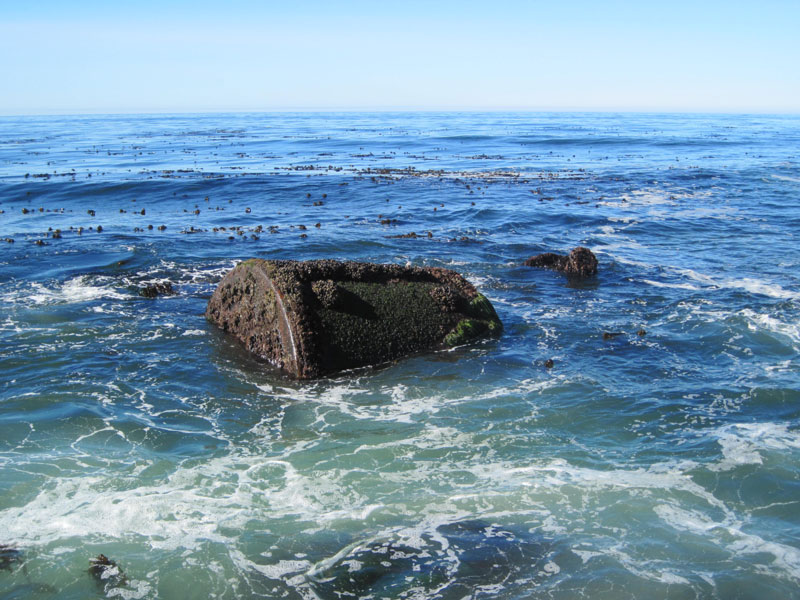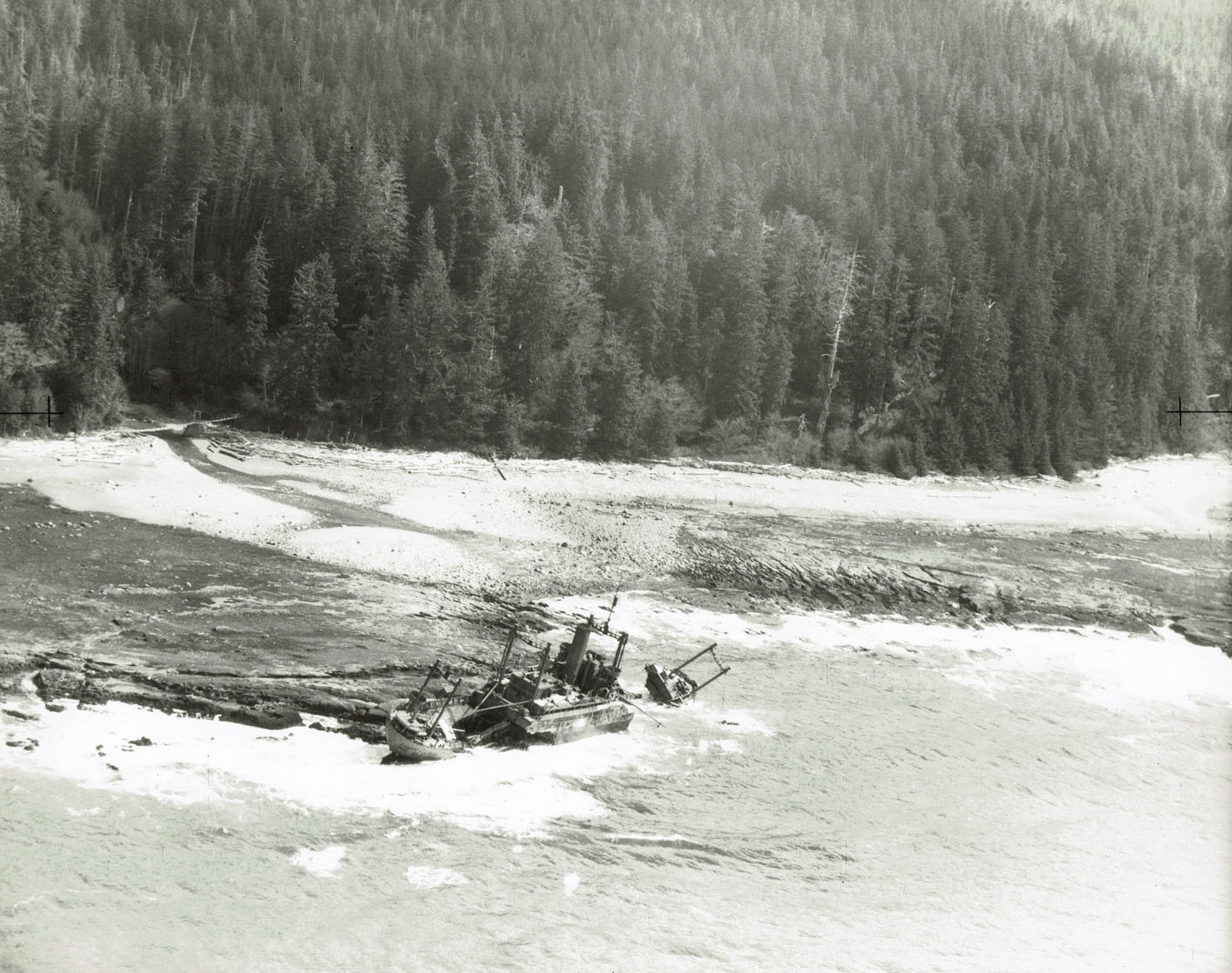This past August I found myself on the incredibly beautiful and fabulous West Coast Trail which runs along the outside coast of Vancouver Island. I was assigned to Pachena Point light station for a month-long posting working as a relief lightkeeper but what was particularly moving was that I was sitting right beside the Graveyard of the Pacific where my father had been involved with a rescue operation of a ship up on the beach some 77 years earlier.
On April 2, 1943, in the midst of World War II, HMCS Outarde the Royal Canadian Navy minesweeper which my father, Dick James, was serving aboard as an Able Seaman, happened to be engaged in minesweeping operations out in Juan de Fuca Strait. Then they received orders that they were to proceed at full speed to the scene of a stranded ship up on the beach just two miles down from Pachena Point. This was the Russian lend-lease freighter S.S. Uzbekistan which had been launched from a shipyard in St. Nazaire, France in 1937 and measured 326 feet in length and was 3039 registered tons.
The freighter slipped her moorings in Portland, Oregon, the morning of April 1st, 1943, and was bound for Seattle where she was to load lend-lease supplies for Vladivostok. Unfortunately, with a southeast gale blowing bringing with it limited visibility, once up along the outside coast of the Olympic peninsula, they missed seeing the light of the Umatilla buoy. Then when they did finally see a flashing light they mistook it as that of the Umatilla. They had made a grave error, instead, it was that of the Swiftsure buoy sitting out off the entrance to Juan de Fuca Strait. As a result, the captain held his ship on a steady northerly course which had them headed right into the outside coast of Vancouver Island. To make matters worse both the lights at Cape Beale and Pachena Point had been shut down following the shelling of the Estevan Point light station a little farther up the outside coast by the Japanese sub I-26 on the 20th of June the year before.
HMCS Outarde, with my father aboard, arrived offshore at the scene of the stranded vessel late the afternoon of April 2nd to find her grounded some 150 yards off the beach sitting broadside up against a rocky shelf just off the mouth of the Darling River. While there were some U.S. coast guard and Canadian naval patrol vessels sitting offshore ready to assist with a rescue, it was the Outarde’s whaler carrying a landing party of 11 men that were able to make it in alongside the Uzbekistan. Unfortunately though, as the whaler approached the stranded ship and what with a strong sea pounding against her hull, she was carried around inside her bow. Here the whaler was caught in the breakers and hurled forward in the surf to be swamped but luckily was deposited upright among the rocks well inshore. The Russian crew who had all landed safely and were camped out just up off the beach went down to lend the whaler’s crew a hand.
After signaling between ship and shore, the Outarde’s landing party left the beach that evening to head off to Pachena Point where arrangements were made to accommodate the sailors. Here they received a good meal and beds for the night. The next morning the Outarde flashed a signal to Pachena instructing the landing party to head out on the trail for Bamfield where they would be picked up to rejoin their ship.
So there I was some 77 years later after this major ship loss, out on Pachena Point. Then with some half-decent weather and a good low tide one afternoon, I hiked down the beautiful West Coast Trail to her wreck site. It required a bit of searching and with some scrambling out over the rocky shelf, I finally came across what little was left of the Uzbekistan. There it was, its huge boiler sitting out there with the surf pounding over it.

